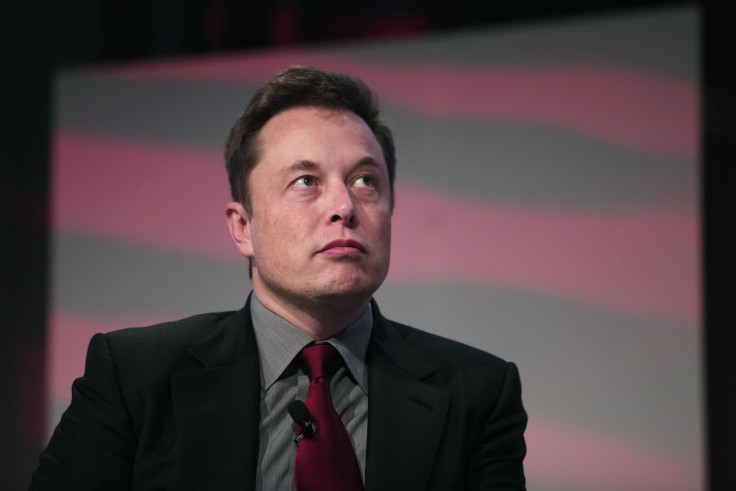Elon Musk Plans Sending Tesla Roadster To Mars While Playing David Bowie

SpaceX founder and CEO Elon Musk announced Friday his aims to launch his Tesla vehicle into outer space in January on a voyage to Mars and back. The billionaire claims that the Tesla Roadster will play David Bowie's "Space Oddity" as it orbits into space from the same NASA launch pad in Florida that Apollo 11 used. The cherry-red car could be deep in space for a billion years, provided that it doesn't blow up upon its ascent.
The rocket, known as the Falcon Heavy, would rank as the most powerful operational rocket worldwide upon liftoff. It has the ability to lift 119,000 lbs. into orbit, which means it could carry the Tesla Roadster.
"Falcon Heavy to launch next month from Apollo 11 pad at the Cape," Musk wrote in a tweet Friday. "Will have double thrust of next largest rocket. Guaranteed to be exciting, one way or another."
"Payload will be my midnight cherry Tesla Roadster playing Space Oddity. Destination is Mars orbit. Will be in deep space for a billion years or so if it doesn't blow up on ascent," Musk added.
Falcon Heavy to launch next month from Apollo 11 pad at the Cape. Will have double thrust of next largest rocket. Guaranteed to be exciting, one way or another.
— Elon Musk (@elonmusk) December 2, 2017
Payload will be my midnight cherry Tesla Roadster playing Space Oddity. Destination is Mars orbit. Will be in deep space for a billion years or so if it doesn’t blow up on ascent.
— Elon Musk (@elonmusk) December 2, 2017
While Musk intends to make the impossible possible with Tesla Roadster's upcoming trip to Mars, he doesn't necessarily expect the Falcon Heavy to make it into orbit on its first-ever launch. Musk claimed that there was a "real good chance" that the rocket may crash on the pad.
"I hope it makes it far enough away from the pad that it does not cause pad damage," Musk said onstage at the International Space Station Research and Development conference in July. "I would consider even that a win, to be honest. Major pucker factor, really; that's, like, the only way to describe it."
In the case that all does go wrong, SpaceX is opting to not utilize humans during the Falcon Heavy's initial launch. Musk does hope to launch a manned mission to Mars by 2024.
The Falcon Heavy is said to be a more powerful rocket than its predecessor the Falcon 9, which has launched 40 times since it was first tested in 2010. The new rocket was initially slated to launch in late 2013 or 2014, but the date has been repeatedly delayed.
"Falcon Heavy will carry more payload to orbit or escape velocity than any vehicle in history, apart from the Saturn V moon rocket, which was decommissioned after the Apollo program," Musk said at a 2011 press conference in Washington D.C. "This opens a new world of capability for both government and commercial space missions."
© Copyright IBTimes 2025. All rights reserved.






















